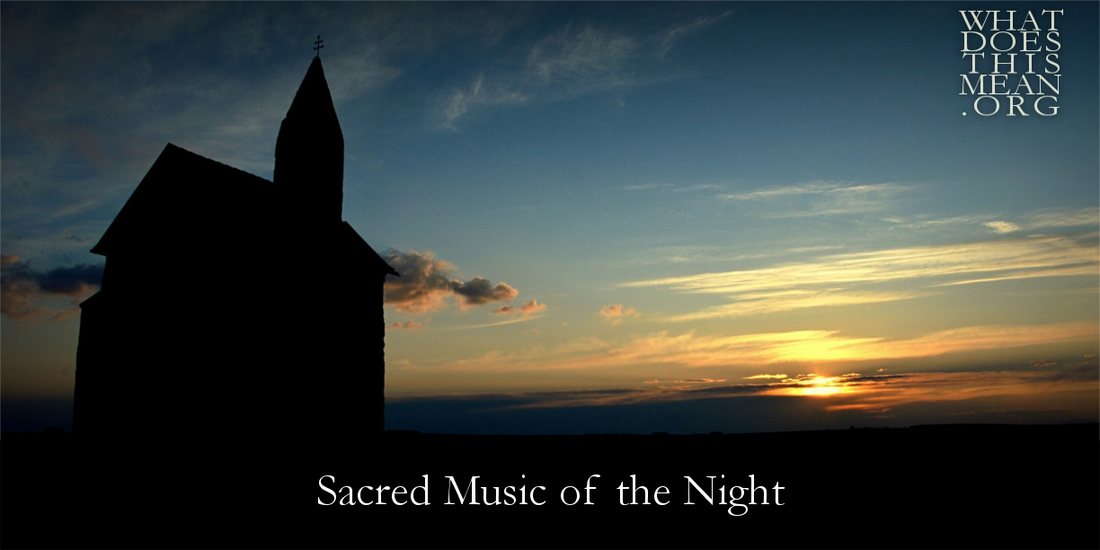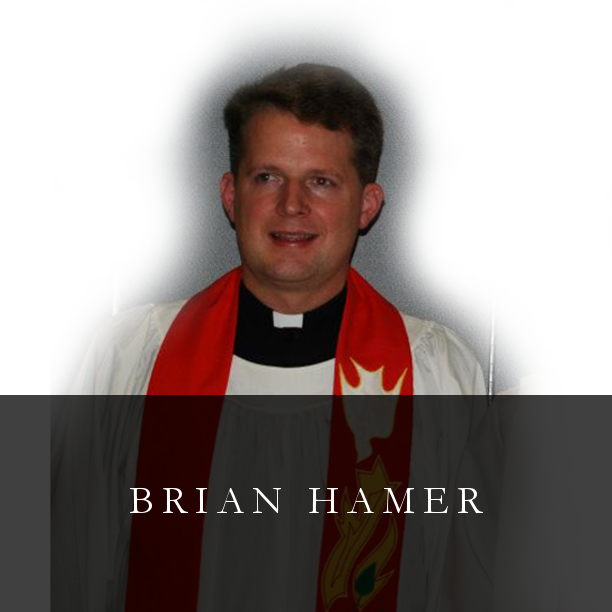that awake we may watch with Christ and asleep we may rest in peace.
|
These non-Communion offices (also known as “Daily Office,” “Divine Office,” or “Canonical Hours”) “flow down from that liturgical mountain peak [of the Lord’s Supper], like streams seeking the lower places, the daily routine and grind of life” (David Kind, Oremus: A Lutheran Breviary, p. vii). Reformation revisions, along with a pesky dynamic known as reality, have generally reduced the rhythm of daily prayer to Matins, Vespers, and Compline. Most recent hymnals, including Lutheran Service Book (LSB), also include the orders of Morning and Evening Prayer, providing at least three evening services to highlight the gifts of the Gospel at eventide: Vespers, Evening Prayer, and Compline. The profound theological themes for eventide have not been lost on the great composers of the church, including the hymn, anthem, and solo that are highlighted in this installment of “Lifted Voice.”
1 Christ, mighty Savior, Light of all creation,
you make the daytime radiant with the sunlight
And to the night give glittering adornment,
Stars in the heavens.
2 Now comes the day's end as the sun is setting,
Mirror of daybreak, pledge of resurrection;
While in the heavens choirs of stars appearing
Hallow the nightfall.
3 Therefore we come now evening rites to offer,
Joyfully chanting holy hymns to praise you,
With all creation joining hearts and voices
Singing Your glory.
4 Give heed, we pray you, to our supplication,
That you may grant us pardon for offenses,
Strength for our weak hearts, rest for aching bodies,
Soothing the weary.
5 Though bodies slumber, hearts shall keep their vigil,
Forever resting in the peace of Jesus,
In light or darkness worshiping our Savior
Now and forever.
The musical rendition in this video utilizes the practice of alternation, wherein different voices sing different stanzas of the hymn. Also notice the use of short organ improvisations between stanzas, as well as a great sensitivity by the organist to the text. Hence he uses full organ at the words, “With all creation joining hearts and voices,” but a much softer registration for the words, “Soothing the weary,” etc. The text, tune, and context of “Christ, Mighty Savior” make it an ideal office hymn for Vespers.
|
Bleib bei uns, denn es will Abend werden, und der Tag hat sich geneiget. |
Abide with us for it will soon be evening and the day has drawn to a close. |
Not to have heard Purcell’s “Evening Hymn” is to be musically deprived. To have heard it is to fall in love with it. So pick your favorite voice part (Purcell probably had in mind the countertenor version) and hear what might be the soundtrack of heaven itself:
Purcell, countertenor:
Purcell, tenor:
Now, now that the sun hath veil’d his light
And bid the world goodnight;
To the soft bed my body I dispose,
But where shall my soul repose?
Dear, dear God, even in Thy arms,
And can there be any so sweet security!
Then to thy rest, O my soul!
And singing, praise the mercy
That prolongs thy days.
Hallelujah! (text: William Fuller, 1608-1675)
Purcell’s timeless treasure is fitting as a responsory to a reading at Compline. Fuller’s text also fits seamlessly as a sung collect for Compline, perhaps influenced by the following prayer of St. Cyprian (d. 258): “Now as the sun is sinking toward evening, let us spend what remains of the day in gladness and not let the hour of repast go untouched by heavenly grace.” (James McKinnon, Ed., Music in Early Christian Literature, p. 49)
The rich treasury of sacred music for eventide proclaims that the life of the baptized is a daily cycle of death and resurrection. Christians see going to bed and getting up in the morning as our daily rehearsal for the sleep of death and the final resurrection of all flesh. Take a moment and page through the evening services, prayers, and hymns in a Lutheran hymnal and notice how many sacred texts preach this profound parallel between sleep at night and sleep in death. The following phrase from Thomas Ken’s (1637-1711) hymn, “All Praise to Thee, My God, this Night,” sung to the tune, Tallis’ Canon, is a good case in point: “Teach me to live that I may dread / The grave as little as my bed. Teach me to die that so I may / Rise glorious at the awe-full day” (LSB 883.3). That is simply to say, as the opening versicles of Compline teach us to pray, “The Lord almighty grant us a quiet night and peace at the last.”



 RSS Feed
RSS Feed
